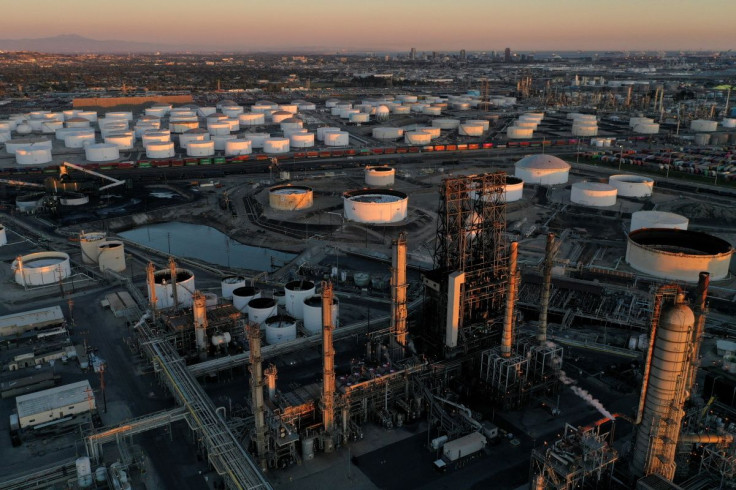Oil Prices Up More Than $6 As EU Considers Russian Oil Ban

Oil prices jumped by more than $6 on Monday, with Brent crude climbing above $114 a barrel, as European Union nations considered joining the United States in a Russian oil embargo and after a weekend attack on Saudi oil facilities.
Brent crude futures were up $6.52, or 6%, at $114.45 a barrel by 1442 GMT, adding to a 1.2% rise on Friday.
U.S. West Texas Intermediate (WTI) crude futures rose $5.90, or 5.6%, to $110.60.
Prices moved higher ahead of talks this week between European Union governments and U.S. President Joe Biden in a series of summits that aims to harden the West's response to Moscow over its invasion of Ukraine.
EU governments will consider whether to impose an oil embargo on Russia.
Early on Monday, Ukraine's deputy prime minister Iryna Vershchuk said there was no chance the country's forces would surrender in the besieged eastern port city of Mariupol.
"Optimism is seeping away about progress in talks to achieve a ceasefire in Ukraine and that's sent the price of oil on the march upwards," Susannah Streeter, senior markets analyst at UK-based asset manager Hargreaves Lansdown, said.
With little sign of the conflict easing, the focus returned to whether the market would be able to replace Russian barrels hit by sanctions.
"With the possibility that more than a million barrels of Russian oil a day will be snubbed, given that the Netherlands and Germany combined received around a quarter of Russia's crude and light oil exports, demand would shoot up for crude supplies from OPEC+ nations."
Over the weekend, attacks by Yemen's Iran-aligned Houthi group caused a temporary drop in output at a Saudi Aramco refinery joint venture in Yanbu, feeding concern in a jittery oil products market, where Russia is a major supplier and global inventories are at multi-year lows.
The latest report from the Organization of the Petroleum Exporting Countries and allies including Russia, together known as OPEC+, showed some producers are still falling short of their agreed supply quotas.
Oil prices were also sensitive to talk of Hong Kong lifting COVID-19 restrictions, which could increase demand, and in response to the growing list of U.S. companies retreating from Russia - including Baker Hughes, ExxonMobil, Shell, and BP.
© Copyright Thomson Reuters 2024. All rights reserved.




















